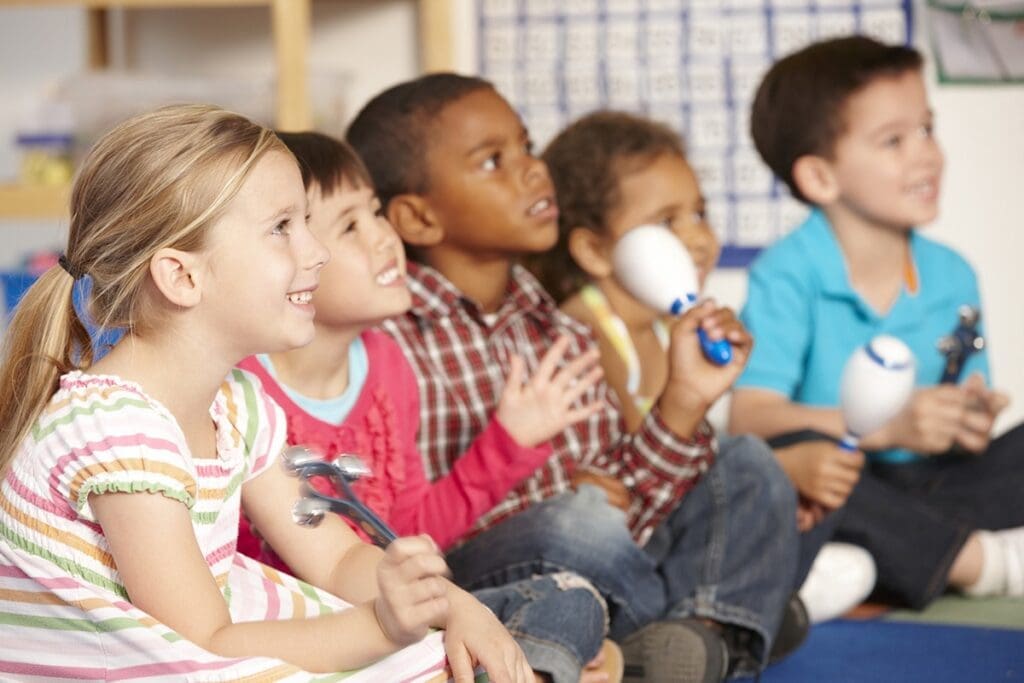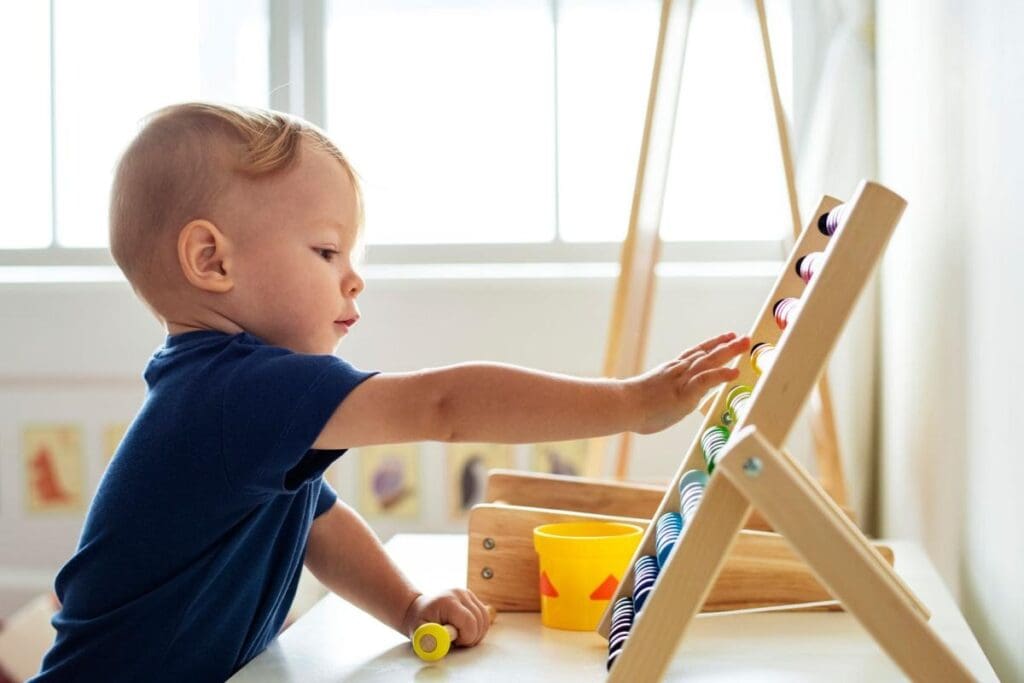Last Updated on November 24, 2025 by
At a kids’ assessment, healthcare experts do detailed checks. They look at how well a child grows in many areas. This includes talking, moving, solving problems, and getting along with others.

These early childhood education evaluation steps are key. They help spot any issues early. This way, we can help kids catch up quickly. Parents get important info on their child’s development and tips to help them grow.
It’s key for parents and caregivers to grasp early childhood screening. This process is vital for spotting developmental delays or concerns in young ones.

Developmental assessments, like kindergarten screening tests, check a child’s growth in many areas. These include thinking, social skills, and physical health. They give a quick look at how a child is doing, showing where they might need extra help.
The main goal is to find any developmental delays early. This way, we can start helping children right away. It helps them keep up with their friends.
Kindergarten testing and early screenings usually happen during check-ups at the doctor’s office. These visits are set up at regular times in a child’s early years. They let doctors keep an eye on how a child is growing.
Screenings can happen in different places, like doctors’ offices, schools, or community centers. When and where depends on the child’s age, health, and local practices.
Early screening tests are done by experts in child development. These include pediatricians, psychologists, or developmental specialists. They know how to use special tools, understand the results, and help parents support their child’s growth.
We work with parents and caregivers to make sure kids get all the support they need. By teaming up with healthcare experts, we can spot where a child might need more help. Then, we can find ways to help them grow better.
As a parent, the early childhood screening process might seem tough. But it’s key to your child’s growth. We’ll help you through each step, from getting ready to understanding the results.
Getting your child ready for a screening can make it easier for both of you. Remember, it’s not a test but a way to check how your child is doing. Explain it simply and tell them it’s a normal part of growing up.
Also, collect any important documents like immunization records and past assessments. This info helps the professionals understand your child better.
A healthcare expert will do several checks to see how your child is doing. They might watch your child, ask you questions, and use standardized tools to test their skills.
The screening looks at things like talking, moving, solving problems, and getting along with others. The Ages and Stages Questionnaire (ASQ-3) is a tool used to check these areas.
Tools like the ASQ-3 give a full picture of your child’s strengths and weaknesses. They are validated and normed on large groups, making sure the results are accurate and fair.
These tools help find any delays or issues early. This way, your child can get help right away.
After the screening, you’ll get the results. They might show areas that need more attention. Remember, the screening is not a final diagnosis but a way to spot possible problems.
If there are concerns, you’ll know what to do next. This might include more tests or seeing specialists. We’re here to help you and your child every step of the way, making sure you get all the support you need.
Kindergarten and pre-K screening tests are key assessments. They check many aspects of a child’s growth. These tests help find out what a child is good at and what they need to work on. This way, kids get the help they need to do well in school.
These tests look at a child’s developmental skills. They check if a child can count, recognize shapes and colors, and understand basic ideas like time. These assessments find out if a child needs extra help or support.
Good communication and language skills are very important for school success. The tests see how well a child understands and uses language. They check vocabulary, sentence structure, and follow instructions. Language evaluations help us see how a child talks and find any speech or language problems.
Social-emotional growth is key to a child’s development. The tests look at how a child interacts with others, handles their feelings, and shows empathy. By checking social-emotional development, we find out who might need extra help or guidance.
Motor skills, both fine and gross, are important for a child’s physical growth and school activities. We use tools like the Peabody Developmental Motor Scales (PDMS-2) to check these skills. This helps us spot any delays or disorders in motor skills.
By looking at these areas, we get a full picture of a child’s development. This lets us give them the right support for success in kindergarten or pre-K.
Understanding early screening’s importance is vital for supporting kids from the start. It offers many benefits, like early intervention. This can greatly shape a child’s development.
Early intervention is key for tackling developmental delays and disabilities. It helps healthcare pros offer specific support early on. Early intervention can significantly boost a child’s chances of reaching their full potential.
A leading health group says, “Early intervention services can greatly improve developmental outcomes for kids with delays or disabilities. It helps them fully join in educational and social activities.” This shows how vital timely screening and help are.
Despite its importance, early screening gaps exist in the US. Only about 30% of kids aged 9–35 months got a developmental screening in the last year. This shows we need better screening to help more kids.
Screening practices differ across US states. Some use universal programs, while others focus more. Knowing these differences helps find the best ways to improve.
When screenings find issues, we must act quickly and well. This might mean more tests, specialist referrals, or support plans. By tackling these issues, we help kids do well.
Good communication between healthcare, schools, and families is key to solving problems and giving full support. Together, we can give kids the care and support they need.
Early childhood screening is key to supporting kids’ growth. It helps parents and caregivers ensure their child gets the right help. This approach is all about being proactive in supporting young children.
Public Health Units in Ontario have shown how important it is to work together. They use different strategies to watch over and screen kids. This shows how vital it is to have healthcare teams and community groups working together. For more details, check out the report from Public Health Ontario.
We are dedicated to helping families and kids succeed. We focus on early education and assessments. This includes understanding what a kindergarten screening is all about.
An early childhood screening is a check done by healthcare pros. It looks at a child’s development to spot any delays early.
These assessments check a child’s growth in different areas. They help find any delays and start early help.
The ASQ tool checks a child’s development in many areas. This includes talking, moving, solving problems, and social skills.
Healthcare pros use tools to check the child’s growth during the screening. Parents get tips on helping their child grow.
These tests check a child’s skills in many areas. This includes how they develop, talk, feel, and move.
Early screening helps a lot. It lets pros start helping early, so kids can get over challenges.
Parents can get ready by knowing what the screening is about. This makes it less scary and more useful for their child.
After the screening, parents get the results. This shows if there are any issues. Then, pros help them understand and support their child’s growth.
The PDMS-2 tool checks a child’s motor skills. It makes sure they get the help they need to do well.
Yes, screening practices vary by state. Working on these differences helps more kids get the support they need.
Subscribe to our e-newsletter to stay informed about the latest innovations in the world of health and exclusive offers!